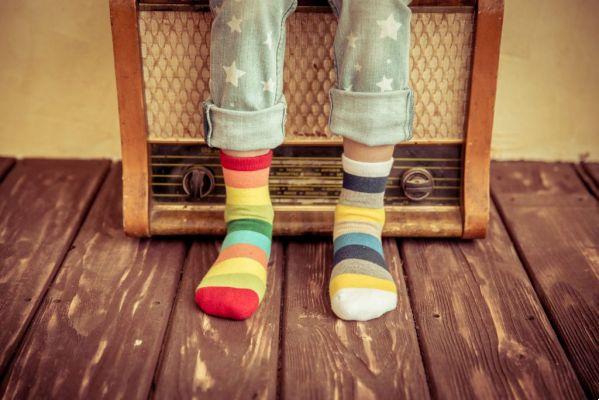Sam shows us what it's like to live without symbolizations, taking everything he hears literally. At the beginning, he introduces himself: “I'm weird. That's what everyone says. Sometimes I don't understand what people mean.” And towards the middle of the series, he declares: “Sometimes I wish I was normal”, and the answer is: “Man, nobody is normal”.
There, it's said! That was one of the things that made me watch and want to write, because we have a story in which all the characters are unique in their issues, human in their anguish and frailties. There is no perfection in any of them, just attempts to live the best way possible.
Sam invites us to listen and respond from another place, outside the metaphors we use daily to stop saying what we mean. He is direct, says exactly what he wants to say and understands exactly what he is told, not what is implicit, but what is explicit in the lines. This, leads us to seek simplicity in speech, invites us to be more direct, but with delicacy. Sam shows us that there are other ways of talking and listening, and that we can, yes, relate to those who are different from us, because the reverse is also true. We are also different from him and not only he from us, and this is an irreversible condition for living, because difference exists and consists of relationships.

Elsa and Doug are other sources of human wealth, Sam's parents are constantly having to deal with a child outside the desired standards, who does not respond to the fantasy of a perfect child that everyone has. The mother occupies a place of overprotection and fear in the face of new possibilities for the child's relationships, she loses her place as a woman and reduces her to the role of mother. She attends a support group, makes food, worries about her son and nothing else. Until this son shows that he is doing well in his father's care and that he doesn't need so much maternal presence. So what's left for you? Rediscover yourself as a woman, desiring and sensual, but at what price? What are the possible paths for this reunion with your desires?
Doug doesn't realize this mismatch between the fantasy of a perfect child and a child of reality and leaves. Upon returning and leading an apparently normal life, he does not mention to his friends that his son has a disorder. He finds it difficult to bond with this son. He stays there, but distant, not knowing much how to become close. However, behold, it is possible to weave a relationship and, then, the meeting of father and son, of two men talking about dating, love, and other things that happen. There's a father of a son being born and it's beautiful to behold.
Casey, Sam's sister, is responsible for his well-being at school, is his advocate and companion. However, faced with a brother who demands a lot of attention from her parents, she doesn't look, as if they didn't need to worry about her. And here it becomes essential to question how it can be heavy for siblings of people with some kind of disorder, this lack of look, of attention, as if they were less important for being able to deal with different situations. While everyone around them is interested, takes care of and is attentive to this child or adolescent with disorder, a silence, a void, a distant way of relating to the other children is created.
Relating is difficult, as a family it is even more so, because proximity, intensity and differences are there all the time, without truce and without disguises. Family is, without a doubt, our greatest battleground, not in the sense of fighting with each other, but in terms of the exercise of learning to see the other as he can show himself and not as we want to see him. An exercise of listening to what is being said by the other through what we can hear and trying to build dialogues through this mismatch of meanings. An exercise in being curious in the face of what seems different, wrong or disturbing in the other.
The family nucleus takes us to the heaven and hell of relationships several times throughout our lives, and this is inevitable. And it is in this coming and going, in the living of these relationships, that we learn and build the basis of our future relationships. And because of this intense place, you have to get out of it sometimes. It is necessary to breathe new air and see that there are other ways to build relationships.
So we have friends. They present us with new ways of perceiving and receiving what is around us. They give us back a certain insignificance, because outside our family nucleus we are just one more, and that is liberating. Sam has a friend who treats him like he's just any friend, not stuck on the spectrum he was diagnosed on all the time. They talk about everything, without squeamishness. This friend bets on Sam's ability to win a girl, to date, have sex and get on with life. While the family nucleus is dense, most friendships are light, and thus, we have the possibility to choose, deconstruct and rethink throughout our lives how important we are to the differences that exist between us and others. And whether these differences will limit or expand our field of vision.
I wish that we can see ourselves and everyone else as atypical, extraordinary, singular, unusual, unique and, precisely because of that, charming human beings.

























